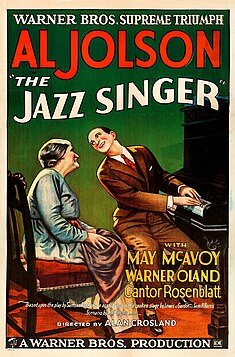
Leon Bismark "Bix" Beiderbecke was an American jazz cornetist, pianist, and composer.

Paul Samuel 'Pops' Whiteman was an American bandleader, composer, orchestral director, and violist.

This is a list of notable events in music that took place in the year 1927.

John Herndon Mercer was an American lyricist, songwriter, and singer. He was also a record label executive who co-founded Capitol Records with music industry businessmen Buddy DeSylva and Glenn E. Wallichs.

Hoagland Howard "Hoagy" Carmichael was an American singer, songwriter, and actor. American composer and author Alec Wilder described Carmichael as the "most talented, inventive, sophisticated and jazz-oriented of all the great craftsmen" of pop songs in the first half of the 20th century. Carmichael was one of the most successful Tin Pan Alley songwriters of the 1930s, and was among the first singer-songwriters in the age of mass media to utilize new communication technologies such as television and the use of electronic microphones and sound recordings.
"Stardust" is a popular song composed in 1927 by Hoagy Carmichael with lyrics added by Mitchell Parish in 1929. Carmichael recorded the song, originally titled "Star Dust", at the Gennett studio in Richmond, Indiana. The "song about a song about love", played in an idiosyncratic melody in medium tempo, became an American standard and is one of the most recorded songs of the 20th century with over 1,500 recordings. In 2004, Carmichael's 1927 recording of the song was one of 50 recordings chosen by the Library of Congress to be added to the National Recording Registry. The song was featured in the film "My Home In Umbria" (2003).
Jazz standards are musical compositions that are an important part of the musical repertoire of jazz musicians, in that they are widely known, performed, and recorded by jazz musicians, and widely known by listeners. There is no definitive list of jazz standards, and the list of songs deemed to be standards changes over time. Songs included in major fake book publications and jazz reference works offer a rough guide to which songs are considered standards.

John Jean Goldkette was a jazz pianist and bandleader.
"Rockin' Chair" is a 1929 popular song with lyrics and music composed by Hoagy Carmichael. Musically it is unconventional, as after the B section when most popular songs return to A, this song has an A-B-C-A1 structure. Carmichael recorded the song in 1929, 1930, and 1956. Mildred Bailey made it famous by using it as her theme song. Like other 1920s standards, "Rockin' Chair" relied on the stereotypes of minstrelsy, citing "Aunt Harriet" from the anti-Uncle Tom song "Aunt Harriet Becha Stowe" (1853).
Frederick Lawrence Wright was a British songwriter, music publisher, and the founder of the music journal Melody Maker. He used the pseudonym Horatio Nicholls for his songwriting activities.
"New Orleans" is a 1932 popular song written by Hoagy Carmichael. The song is now considered a jazz standard, along with several other Carmichael compositions such as "Stardust", "Georgia on My Mind" and "Lazy River".
"Among My Souvenirs" is a 1927 song with words by Edgar Leslie and music by Horatio Nicholls.

Swing jazz emerged as a dominant form in American music, in which some virtuoso soloists became as famous as the band leaders. Key figures in developing the "big" jazz band included bandleaders and arrangers Count Basie, Cab Calloway, Jimmy and Tommy Dorsey, Duke Ellington, Benny Goodman, Fletcher Henderson, Earl Hines, Glenn Miller, and Artie Shaw. Duke Ellington and his band members composed numerous swing era hits that have become standards: "It Don't Mean a Thing " (1932), "Sophisticated Lady" (1933) and "Caravan" (1936), among others. Other influential bandleaders of this period were Benny Goodman and Count Basie.

The period from the end of the First World War until the start of the Depression in 1929 is known as the "Jazz Age". Jazz had become popular music in America, although older generations considered the music immoral and threatening to cultural values. Dances such as the Charleston and the Black Bottom were very popular during the period, and jazz bands typically consisted of seven to twelve musicians. Important orchestras in New York were led by Fletcher Henderson, Paul Whiteman and Duke Ellington. Many New Orleans jazzmen had moved to Chicago during the late 1910s in search of employment; among others, the New Orleans Rhythm Kings, King Oliver's Creole Jazz Band and Jelly Roll Morton recorded in the city. However, Chicago's importance as a center of jazz music started to diminish toward the end of the 1920s in favor of New York.
"Baltimore Oriole" is a 1942 song written by American composer Hoagy Carmichael with lyrics by Paul Francis Webster and Carmichael. Carmichael said it was his favorite of all the songs he had written.

Clarinet Marmalade, later Clarinet Marmalade Blues, is a 1918 dixieland jazz standard composed by Larry Shields and Henry Ragas of the Original Dixieland Jass Band. It is played in the key of F major. It was recorded by Fletcher Henderson in 1926 and Frankie Trumbauer in 1927.
Reginald DuValle (1893–1953) was an American jazz pianist, accordion player, and a bandleader from Indianapolis, Indiana, who taught jazz singer-songwriter Hoagy Carmichael improvisation on the piano.
"Ole Buttermilk Sky" was a big hit in 1946 for Kay Kyser and other artists. It has been covered by a multitude of artists over the years. The following year, it was nominated for the Academy Award for Best Original Song at the 19th Academy Awards.









